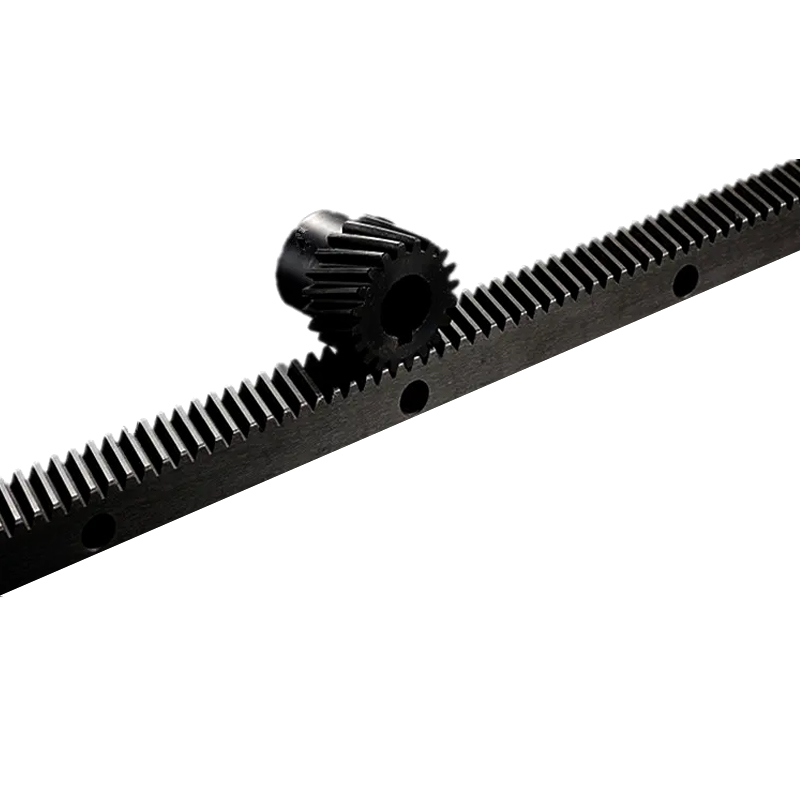No. 200 Gaoxin RD, Shanghua St, Lanxi, Zhejiang, P. R China
The CNC (Computer Numerical Control) machine tools are widely used in ...
See Details
Precision is the foundation of gear performance, and nowhere is this more critical than in the production of helical gears. These gears, known for their smooth operation and efficiency, must be manufactured with careful attention to detail to meet demanding industrial standards. A Helical Gear Factory uses a combination of advanced processes, strict quality checks, and skilled craftsmanship to ensure each gear functions reliably in real-world applications.
Advanced Design and Engineering
Before any gear is manufactured, precise engineering design is essential. In a Helical Gear Factory, computer-aided design (CAD) software is commonly used to create exact specifications. This digital foundation allows engineers to model tooth angles, gear ratios, and stress distribution. By simulating real-life operating conditions, the design stage reduces errors and ensures that the gears will align properly when assembled into machinery.
High-Quality Materials
Material selection plays a central role in ensuring precision. Factories often work with alloy steel, carbon steel, or other specialized metals, depending on the intended application. A Helical Gear Factory typically verifies the quality of raw materials through chemical composition analysis and hardness testing. Using consistent, reliable materials helps maintain accuracy during machining and prevents defects that could compromise performance.
Precision Machining Processes
Once materials are prepared, the gears undergo detailed machining. Modern factories rely on CNC (Computer Numerical Control) machines, gear hobbing, and grinding processes to achieve exact tooth geometry. These machines can consistently reproduce complex designs with minimal deviation. A Helical Gear Factory often employs multiple machining stages, such as rough cutting followed by fine grinding, to achieve the required accuracy. Each step is closely monitored to ensure tolerances remain within the specified range.
Heat Treatment for Stability
Precision is not only about dimensions; it also involves durability under stress. Heat treatment processes such as carburizing, quenching, and tempering are used to strengthen gears and improve wear resistance. A Helical Gear Factory carries out these treatments under controlled conditions to prevent distortion and maintain the precise measurements achieved during machining. Proper heat treatment ensures that gears perform consistently over long service lives.
Rigorous Quality Inspection
Inspection is a constant part of the workflow. Factories often use coordinate measuring machines (CMM), profile testers, and gear measuring centers to check tooth profiles, alignment, and surface finishes. These tools allow technicians to detect even the smallest deviations. A Helical Gear Factory usually documents these results to provide traceability, which helps build confidence for clients who require consistent and reliable performance.
Skilled Workforce and Continuous Training
Even with advanced machines, human expertise remains critical. Skilled technicians oversee processes, make adjustments, and identify issues that automated systems might miss. Many factories invest in ongoing training to keep workers updated on machining techniques and inspection methods. By combining human knowledge with technology, a Helical Gear Factory ensures that precision is not left to chance.
Continuous Improvement Practices
To maintain long-term accuracy, factories often apply continuous improvement systems such as lean manufacturing or Six Sigma. These practices help reduce waste, improve efficiency, and enhance process consistency. Feedback from inspection data and client requirements often guides adjustments in production methods, ensuring gears are manufactured to precise standards with every batch.
Precision in helical gear manufacturing is the result of careful design, accurate machining, reliable materials, and thorough inspection. A Helical Gear Factory integrates technology, skilled labor, and process control to ensure each gear meets demanding requirements. By focusing on these elements, the factory delivers products that operate smoothly, resist wear, and maintain performance over time.